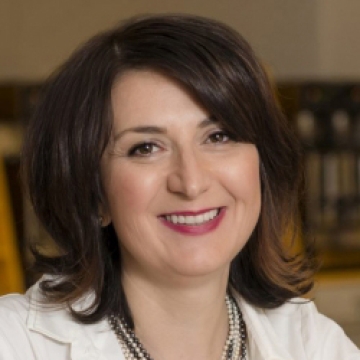Across the landscape of marketing and sales, today's leaders face the central challenge of mastering the art of team building and development—a critical skill set largely absent from traditional education and training programs for revenue leaders.
At the intersection of this important shift stands the Chief Revenue Officer (CRO), a role uniquely positioned to bridge the gap between analytical expertise and the critical team-building competencies required in our current business climate. The CRO's ability to foster high-performing, cross-functional teams across marketing, sales, and customer success has become a central driver for sustainable revenue growth and maintaining competitive advantage in an increasingly complex marketplace.
“CROs are no longer just focused on selling,” says Victoria Gustafson, cofounder of Verde Associates and instructor for the Chief Revenue Officer Executive Education Program offered by the University of Chicago Professional Education (UCPE).
“It’s about motivating others, understanding their needs, and doing it consistently for their teams, internal stakeholders, and members of their organizations. If the traditional idea was that a collective of high-achieving individuals was key to a company’s success, research from recent decades has shown that well-run teams consistently achieve higher results than individuals working separately. This really brought the importance of team-building for CROs to the fore.”
The CRO's responsibilities extend beyond their own organization, Gustafson notes, to encompass client organizations, board members, and investors. What’s more, charged with ensuring that product roadmaps are aligned with customer needs,CROs also work cross-functionally to adapt quickly to shifting market demands and conditions.
“What makes a high-performing CRO so important for organizational growth and revenue generation is the scope the role covers,” says Gustafson. “They’re not only experts in their product, they also have to be experts at using data analytics and implementing KPIs to monitor performance and identify trends. All of this has to be harmonized to create an ecosystem of high-performing teams and that’s why the job really requires both high IQ and high EQ [emotional intelligence].”
From Focusing on Products to Building High-Performing Teams
Gustafson secured her insights into the value of high-performing teams and the central leadership role of CROs in an organic way over the course of her career.
With a degree in economics from UC Berkeley, she began her career at the Dutch multinational conglomerate Philips, where she analyzed start-ups while based in Silicon Valley and worked to build out the company’s capabilities in consumer electronics and new health technologies.
Several years later, earning an MBA from the University of Chicago Booth School of Business, while still with Philips, sharpened her focus around marketing and strategic management and set the stage for the next step in her career. This next step involved selling high-ticket marketing and sales analytics products to consumer packaged goods companies for Circana, a leading market research and data analytics company.
“I worked strategically with data scientists to build products that drive better decision making and which helped companies identify white spaces for improving their revenue growth,” she says. “My strategic management and marketing concentrations at Booth complemented my degree in analytical economics and gave me new ways to leverage both the left and right sides of my brain to solve problems.”
Throughout this time her efforts remained product-centric and focused on the unique features and capabilities of these sophisticated technologies. But a transformational moment arrived six years into her tenure at Circana when she was tasked with onboarding a new client and building a high-performing team.
“That’s when my interest and research into building agile teams really began,” she says. “For selling and servicing these complex products, I started to realize that the technology was only part of it. Even more, it’s about the people on the teams and managing complex team dynamics where interpersonal and intrapersonal issues vie with highly specialized competencies. It didn’t take long for me to realize it was something I wanted to be working on for the rest of my career.”
The Creative CRO
After going on to build several more high-performing teams from the ground up, Gustafson cofounded Verde Associates, a consulting firm dedicated to optimizing organizational evolution with a particular focus on building high-performing teams.
With her focus now concentrated on teams, she started to gain a fuller appreciation for the uniqueness of each business challenge and the inventiveness of the solutions required. Going beyond the standard set of out-of-the-box solutions, she saw the need to expand her knowledge of available tool kits by earning her PhD in organizational development.
“Out-of-the-box solutions rarely yield anything but average results,” she says. “A core lesson of my work has been the need to stay alert as you weave assessment tools together with proven business management frameworks to address the specificity of the challenge the business is facing. It’s both experience and extensive academic research that have shaped my thinking here.”
With a particular focus on organizational evolution and growth acceleration, her research and continued experience with teams allowed one of Gustafson’s central insights to crystallize.
“When building a team, you have to be creative about what you’re looking for,” she says. “Often that means challenging conventions about what makes a person successful in a sales role. There’s no one size fits all.
“There are times, for example—and this was not an approach people had previously—when the ability to engage a client with compelling storytelling is more important than technical competence. That realization drove home the idea that teams become stronger with a higher diversity of backgrounds and skills.”
Gustafson notes how the rising complexity of advanced sales analytics tools led to the increased importance of customer success teams dedicated to helping clients implement the software effectively. This customer focus in turn introduced a much stronger element of design thinking into the development of products.
While selling complex products traditionally required a background rooted in technical expertise, the growing centrality of client relationships brought a new set of softer skills to the fore. These became essential for succeeding in the emerging dimensions of the role, such as identifying opportunities for upselling and cross-selling and reducing churn.
“It’s not enough to just have a meaningful product, you also need to be able to sell it and navigate through a very complex customer organization,” Gustafson says. “What is procurement looking for? What is the CFO looking for? What is the CEO looking for? Each one of them will look at your product differently and from their own point of view.
“These weren’t things you had to consider before, but today CROs understand that a key area of their mandate lies in developing and nurturing people and creating an environment that empowers them to innovate and take calculated risks.”
Taking Careers to the Next Level
Gustafson’s emphasis on team dynamics has not only propelled her corporate consulting work but it’s also become the cornerstone of her teaching philosophy.
“In my classes, I teach students what it takes to build, manage, and lead high-performing teams,” she says. “A good leader gives the members of their team what they need, though not necessarily what they want, and this means CROs have to develop their capacity for empathy and building trust. We spend a lot of time in our courses learning how to do that.”
“Leading High-Performing Teams,” Gustafson’s course in the Chief Revenue Officer Executive Education certificate, is just one of seven essential courses comprising the University of Chicago Professional Education’s ten-month online program that prepares VPs of Sales, heads of marketing, and other revenue leaders for the C-suite. Through interactive activities and immersive live sessions, each course is led by instructors and guest speakers at the top of their fields ready to impart the knowledge, tools, and skills needed to take on the role of CRO.
Want to learn more about the CRO role? Read this article: The CRO: Today’s Essential Leader.

Elevate Your Career and Become a Chief Revenue Officer
Join the Chief Revenue Officer (CRO) Program to gain the knowledge, tools, and skills needed to enter the C-suite strata. Learn how to get started.
Get In Touch



